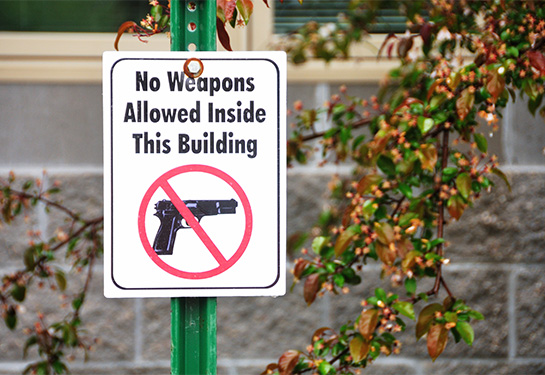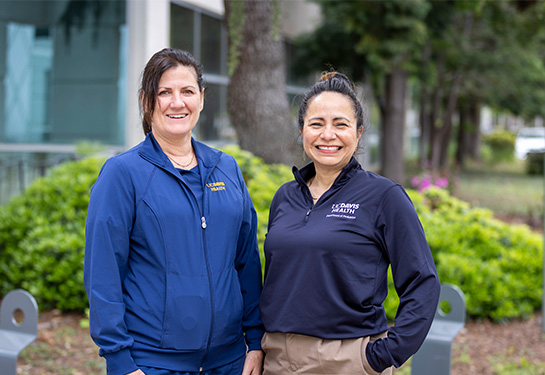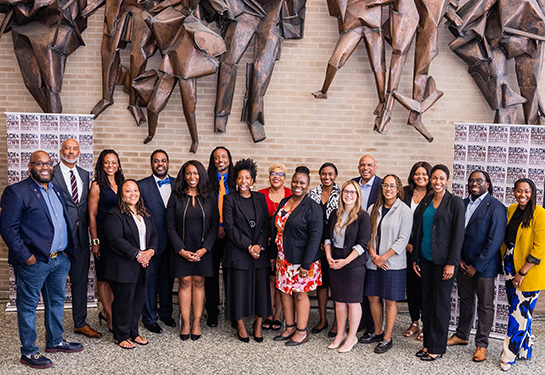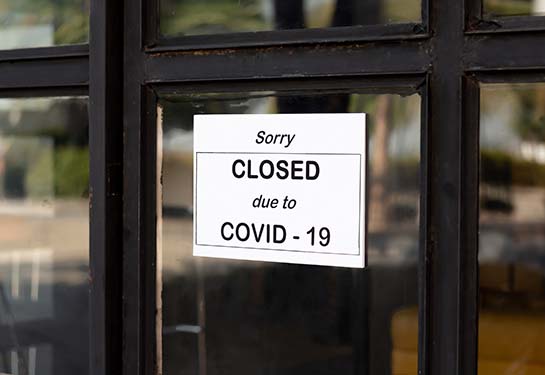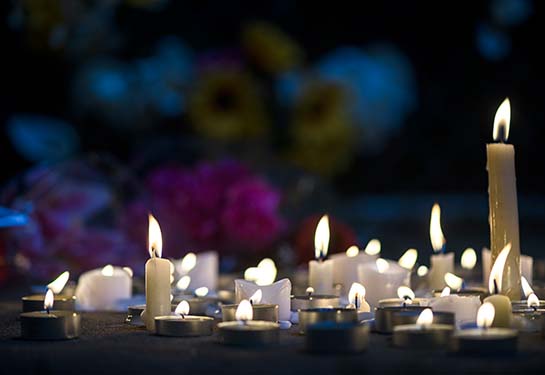-
January 07, 2026
When (and why) doctors might ask patients about guns
A new paper from researchers at the BulletPoints Project outlines why conversations about firearms belong in the exam room and how clinicians can approach the sensitive subject with their patients.
Read More
-
October 21, 2025
Physician and gun violence prevention expert Garen Wintemute inducted into National Academy of Medicine
The nationally recognized expert in gun violence prevention and pioneer in the field of injury epidemiology was inducted into the National Academy of Medicine Oct. 18.
Read More
-
August 30, 2024
Study suggests gun-free zones do not attract mass shootings
A new study from the Violence Prevention Research Program at UC Davis suggests that gun-free zones may reduce the risk of mass shootings.
Read More -
August 15, 2024
New funding for violence prevention research in California
The California Firearm Violence Research Center is awarding $225,000 to support research on the causes, consequences, and prevention of violence
Read More
-
May 30, 2024
Sacramento’s first comprehensive trauma recovery center to open at UC Davis Health
UC Davis Health will open a trauma recovery center thanks to a $1.2 million grant from the California Victim Compensation Board.
Read More
-
March 27, 2024
$3M Robert Wood Johnson Foundation grant to fund gun violence research
UC Davis Health received a $3 million grant to support research by the Black & Brown Collective. The group is studying gun violence that disproportionately impacts marginalized communities.
Read More -
March 25, 2024
How firearms move from legal purchase to criminal use
A new study of California firearm data identifies specific risk factors associated with a legally purchased gun that is later used in a crime.
Read More -
March 01, 2024
Violence prevention study wins top journal award
Researchers at the UC Davis Violence Prevention Research Program received the Jess Kraus Award for their research study examining the potential for political violence in the U.S.
Read More
-
October 31, 2023
Domestic violence involving firearms increased during COVID-19 pandemic
Firearm domestic violence increased in three major U.S. cities during the pandemic according to a new study from the Violence Prevention Research Program.
Read More -
October 05, 2023
New study looks at attitudes towards political violence
A new UC Davis study reveals a complex mix of attitudes, concerns and beliefs about the state of democracy and the potential for violence in the U.S.
Read More
-
April 25, 2023
Estimated 6.5 million Californians know someone at risk of harming themselves, others
A new study shows one in five adults in California, or about 6.5 million people, know someone at risk of harming themselves or others.
Read More
-
March 17, 2023
Can records of firearm purchases help prevent mass shootings?
A first-of-its-kind study examining records of gun purchases in California found that mass and active shooters have distinct patterns of buying guns compared to other legal purchasers.
Read More
-
September 06, 2022
New study finds racial and ethnic differences in perception and use of ‘red flag’ laws
Although extreme risk protection orders (ERPOs) show promise in preventing firearm violence, new research from the Violence Prevention Research Program finds racial and ethnic differences in how ERPOs are perceived and used in California.
Read More
-
August 01, 2022
Free course to help health care providers reduce gun violence
The BulletPoints Project has launched a free online course to help health care providers and others reduce gun violence. The hour-long training teaches clinicians how to identify at-risk patients and how to intervene according to the type and level of risk of firearm violence.
Read More
Free Course to Help Health Care Providers Reduce Gun Violence
-
July 20, 2022
Survey finds alarming trend toward political violence
A new report published by researchers at the UC Davis Violence Prevention Research Program reveals alarming trends in attitudes toward violence, including political violence, in the United States.
Read More -
July 14, 2022
Machine learning identifies gun buyers at risk of suicide
A first-of-its-kind study from the Violence Prevention Research Program at UC Davis shows an algorithm can forecast the likelihood of firearm suicide using handgun purchasing data. The study was published in JAMA Network Open.
Read More
-
June 17, 2022
Extreme risk protection orders to prevent mass shootings: What does the research show?
Mass shooters frequently share their plans, creating opportunities to intervene. Experts from the UC Davis Violence Prevention Research Program provide an overview of the research on mass shootings and the “red flag” laws or extreme risk protection orders (ERPOs) designed to stop them.
Read More
-
May 04, 2022
Violence prevention expert Buggs attends White House ceremony tackling ‘ghost guns’
Shani Buggs, an assistant professor with the UC Davis Violence Prevention Research Program, attended a White House ceremony as a representative of the Fund Peace coalition. The event marked new rules cracking down on untraceable “DIY” firearms known as ghost guns.
Read More
-
January 28, 2022
Unemployment associated with increase in violence early in COVID-19 pandemic
The sharp rise in unemployment during the first five months of the pandemic was associated with an increase in firearm violence and homicide in 16 major American cities. That was the finding of a new study from the Violence Prevention Research Program.
Read More -
January 03, 2022
New research shows violence is broadly felt by millions of Californians
Researchers at UC Davis Health have shown millions of Californians are indirectly impacted by violence. While relatively few experience violent acts, 64% of surveyed Californians heard gunshots, passed sidewalk memorials or learned about violence through their social networks.
Read More
-
December 21, 2021
Handgun ownership and intimate partner violence history increases risk of violent crime
Researchers at UC Davis Health have shown that handgun owners charged with intimate partner violence were more likely to reoffend and commit other violent crimes, including murder, rape and aggravated assault.
Read More -
December 09, 2021
Violence increased most in marginalized neighborhoods early in the COVID-19 pandemic
Low-income communities of color experienced significantly greater increases in firearm violence, homicides and assaults compared to more affluent communities during the first five months of the COVID-19 pandemic, according to a new study from the Violence Prevention Research Program.
Read More
-
January 14, 2021
Exposure to violence takes a toll on the socioemotional well-being of Californians
A survey of Californians finds that exposure to violence has pervasive social and emotional impacts on people, especially when firearms are involved.
Read More
-
September 08, 2020
Gun owner perceptions about actual firearm dangers suggest opportunities for improving gun safety
Owning a gun or living in a house with a gun linked to a lower perception of risk for gun violence.
Read More
-
August 26, 2020
Gunshot injuries in California drop, but percentage of firearm deaths goes up
Despite a significant drop in gun injuries, California has experienced a substantial increase in the state’s overall death rate among those wounded by firearms.
Read More
-
July 31, 2020
Insights about firearm ownership and opinion may help advance gun violence prevention policy
Understanding firearm ownership and opinion may help advance gun violence prevention policies, according to UC Davis Health researchers in a new study out today.
Read More -
July 06, 2020
Surge in firearm purchasing during pandemic’s onset linked to higher rates of firearm violence in U.S.
A surge in firearm purchasing in the U.S. during the coronavirus pandemic – estimated to be over 2.1 million excess purchases – is linked to a significant increase in firearm violence, a study by UC Davis Violence Prevention Program suggests.
Read More
-
June 18, 2020
UC Davis study details use of extreme risk protection orders in California over first four years
The population-based study is one of the first to detail the early use of ERPOs in California. The policies help fill a gap in violence prevention efforts by allowing individuals to intervene when someone who is not prohibited from owning a firearm poses an immediate risk of violence to themselves or others.
Read More
-
September 30, 2019
Handgun purchasers with a prior DUI have a greater risk for serious violence, study finds
A UC Davis study of nearly 80,000 legal handgun owners in California finds that those with a prior DUI conviction have a greater risk of murder, rape, robbery, aggravated assault and other serious violent crimes compared to those without DUI convictions.
Read More



